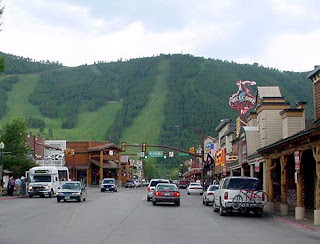In Feudal Europe the peasants would rise up, occasionally, against particularly oppressive lords. After a bit of looting, killing and drunken revelry the ‘Jacquerie’ would be suppressed by all the neighboring lords with a fair measure of atrocities to send the proper message. Keep your place, Peasants. Your pitchforks are no match for our armed, heavy horsemen.
In our fertile, but as yet, futile Virginia the peasants are rising here and there. It’s not clear if their efforts will be as ephemeral as a Jacquerie or more like the 1775 rising for the Rights of Englishmen in America.
The difference between the losing and the winning among Hanger, Stosch, Bell and Williams is very local and idiosyncratic.
I was intimately involved in the Stall win (Full Disclosure). I was in contact with fellow peasants in other races.
Working the polls in Poquoson (our town went 59:41 for Stall with 12% voting in a party primary), I heard five people say variations of this:
The politicians, both Republican and Democrat, think we are stupid. We aren’t. We will show them here at the polls.
Other comments were about how many times we have to vote ‘No’ for an elected official to get the message – and not cram unelected, unaccountable Regional Government down our throats.
What is wrong when a politician will spend over a half million dollars to keep his job? Who is getting paid off? Etc.
Since Tuesday afternoon, I’ve heard the same sentiments from voters in Newport News, York, and Hampton. The Democrats on the Hampton City Council may have gotten the message. Last night they voted unanimously against the Transportation Tax Panic – Regional Government.
There is a palatable sense of betrayal held by many common folk for elected officials, former elected officials and party officials who support incumbents who betray campaign promises and party creeds to raise taxes and expand government. There is genuine disgust with reflexive Republicans – those Republicans who would support – name your villain – no matter what they do in office as long as they were once elected as Republicans.
The resentment caused by poor management of the Iraq War and, way more, with the Illegal Alien Shamnesty Bill is great and growing.
Lest I give the wrong connotation – this isn’t a vote of angry people whose ire will blow over after a relaxing summer.
It is a thoughtful vote of people who are grateful for a choice in a candidate who reflects their opinions. It is a fatigue with big government, tax and spend, tin ear politicians who won’t enforce the laws on the books – the Rule of Law – let alone their campaign promises. It is an energy from people who are Patriots in every sense of the word – so many have military experience or serving family members now. It is a growing determination to do what is necessary – walk away from a major political party that once held their hopes and aspirations or any candidate – who won’t do what is fundamentally necessary to protect and preserve the Constitution of the United States and the Commonwealth of Virginia – in absolute service to The People – not the special interests, the money donors, the circular flow of privilege and wealth that is Virginia’s way to do political corruption.
Pundits can dismiss this little primary as they like. They didn’t look the voters in the eyes. They didn’t hear their voices. They didn’t feel the grip of their handshake and hugs.
We beat a 12 year incumbent who outspent Tricia Stall over 10:1. Isn’t money supposed to define who wins or loses? Besides, this is Tidewater where politicians are elected for life – from either party.
I don’t think this is just a Jacquerie in Virginia. If Illegal Alien Shamnesty passes in Washington – we may sense, emotionally, of what it was like after the Boston Massacre and the Tea Party and the wooden bridge at Concord all built upon one another – to where the government has broken its trust with The People. The difference is all of the political fighting will be with ballots, not bayonets.
And, perhaps, as we did on The Peninsula – The People will speak clearly.




